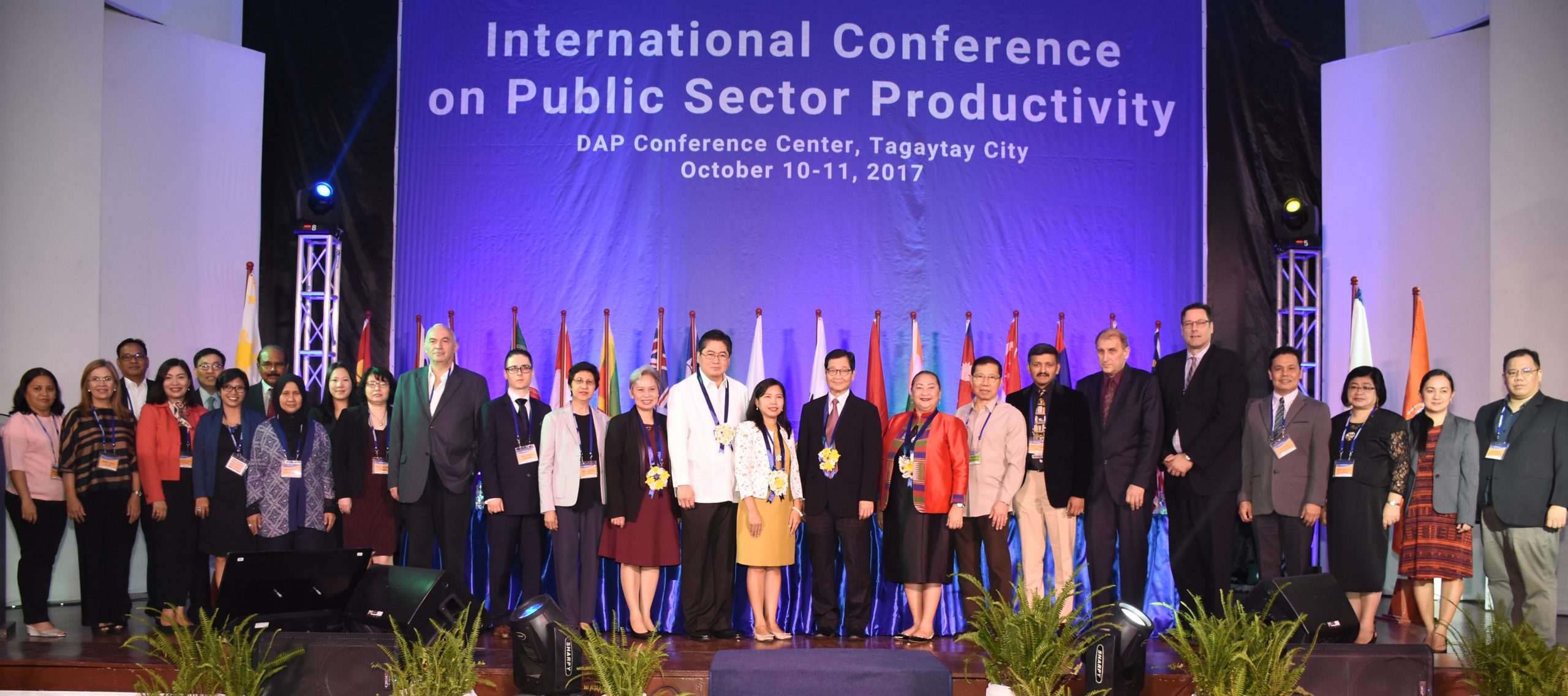
Select Page
Strategic foresight capability is the key for governments in APO member economies to navigate economic, environmental, and societal uncertainties by anticipating and preparing for possible, probable, and, most importantly, their desired futures, said Asian Productivity Organization (APO) Secretary-General Santhi Kanoktanaporn.
Speaking at the APO International Conference on Public-sector Productivity in Tagaytay City, the Philippines, 10–13 October 2017, Dr. Santhi called upon member governments to abandon old perceptions of economic, productivity, and business models and consider how they could shape the future to meet their longer-term economic goals. The three-day conference, organized in collaboration with the Development Academy of the Philippines (DAP), is attended by over 700 delegates.

“Traditional productivity focuses on doing things right, for example, by doing things better and faster. On the other hand, Sustainable Productivity is about doing the right things right. To know whether we are doing the right things will require strategic foresight capability,” the Secretary-General explained, adding that organizations needed strategic foresight capability to understand whether they were doing the right thing and the APO was working to help member countries be able to do that.
Emphasizing that the new concept of Sustainable Productivity incorporated strategies to make productivity meaningful, Dr. Santhi stated that the APO was collaborating with other institutions to initiate a research project on Sustainable Productivity and develop suitable new indicators to capture the actual outcomes of economic activities and productivity growth in today’s technology-driven economic era.
“Strategic foresight allows us to anticipate and identify opportunities and threats that may arise in the mid- to long-term versions of the future. At the macro level, governments need to be forward thinking and prepare for unforeseen changes in environments and circumstances,” he said. “The main challenge facing governments is how to reconcile the desire to achieve high economic growth while balancing environmental and societal needs amid global uncertainties.”
The APO had adopted a new approach to align its programs with the long-term development goals of member economies. “The APO Strategy Development Approach incorporates foresight capacity building to help member countries plan for complex scenarios caused by the unpredictable social, political, and economic environments around the world. Using a modern, structured, strategic planning approach, member countries will be able to anticipate emerging trends, identify their driving forces affecting economies and organizations, and develop plausible scenarios of how the contextual environment may change over a certain period,” said the Secretary-General.
Dr. Santhi informed conference delegates that the Secretariat had set up the APO Strategic Future Platform and Future Team as part of its Strategy Development Approach to provide powerful narratives on how the future might unfold in ways relevant to the APO and its members.
“One of the issues the Future Team has worked on is developing scenarios of how digital technologies will affect labor productivity by 2025. These scenarios are not predictions. They only provide insights into what might be important drivers of change in the future and how those drivers might interact and affect the APO and member countries,” he commented, noting that the issues the APO Future Team had studied were important to the Philippines as they concerned both labor productivity and future jobs.
“Such concerns about the impact of changing technology on employment are not new. But because the changes are now more revolutionary than evolutionary, their complexity has multiplied many fold and we have to use a different approach,” the Secretary-General pointed out. He also called upon the government of the Philippines to build up its foresight capacity through existing institutions such as the DAP or even new institutions dedicated to foresight and strategy. “Such institutions should advise the highest political offices in the Philippines on preparing scenarios aimed at identifying and solving complex issues that demand interministry knowledge, coordination, and authority,” he stressed.
Dr. Santhi concluded that it was the duty and responsibility of policymakers to help steer their countries in the right long-term direction and to make a difference through bold national initiatives that could ultimately enable their citizens to live in peace and prosperity.
Click here for the keynote speech by APO Secretary-General Santhi Kanoktanaporn.
Photo: DAP